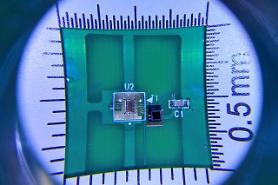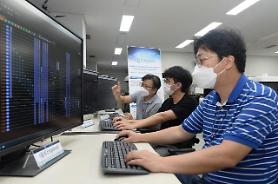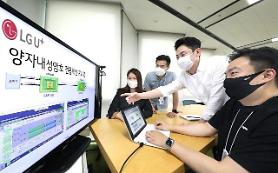
[Courtesy of LG Electronics]
SEOUL -- LG Electronics joined a community of companies, academic institutions, startups and research labs working with IBM to advance quantum computing. Using IBM's technology, The South Korean company aims to explore quantum computing applications in any areas requiring processing a large amount of data including artificial intelligence, connected cars, digital transformation, internet of things and robotics applications.
Binary digital electronic computers are based on transistors and capacitors with data encoded into binary digits (bits). Quantum computing uses quantum bits or qubits, based on the principles of quantum theory, which explains the nature and behavior of energy and matter on the quantum level. Theoretically, a quantum computer would gain enormous processing power and perform tasks using all possible permutations simultaneously.
Members of IBM's quantum network are provided with access to IBM’s most advanced quantum computing systems and development tools such as Qiskit, an open-source quantum information software development kit. "Based on our open innovation strategy, we plan to use IBM Quantum to develop our competency in quantum computing," LG's chief technology officer Kim Byoung-hoon said in a statement on January 10.
By leveraging IBM Quantum technology, LG Electronics said it would provide workforce training to employees and investigate how potential breakthroughs can be applied to its industry.
IBM's quantum team and LG Electronics will explore how quantum computing will help a variety of industries and disciplines, including finance, energy, chemistry, materials science, optimization and machine learning, among many others. IBM vice president Jay Gambetta in charge of quantum computing said LG Electronics will be allowed to explore new types of problems associated with emerging technologies.
South Korea has joined an international race to develop quantum computing technology and hardware. Quantum cryptography is an essential security solution for safeguarding critical information. Data encoded in a quantum state is virtually unhackable without quantum keys which are basically random number tables used to decipher encrypted information.
In April 2021, LG Electronics tied up with Dutch quantum-computational software developer Qu&Co to develop quantum computing technology for multiphysics simulation. The joint study is aimed at increasing the competitiveness of future technologies by utilizing quantum computing.
LG Uplus (LGU+), a mobile carrier, has commercialized post-quantum cryptography (PQC) technology, which refers to cryptographic algorithms that are thought to be secure against an attack by a quantum computer. Cryptographers are designing new algorithms to prepare for a time when quantum computing becomes a threat. PQC does not require separate network infrastructure to distribute cryptographic keys because it can be applied flexibility to different sections of wired and wireless networks that require encryption.
Copyright ⓒ Aju Press All rights reserved.



